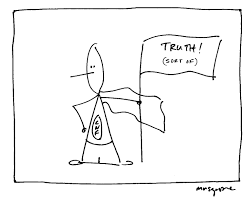I write historical fiction, stories that are grounded in historical fact, but rooted in fictional people. Doing that requires a lot of research, which I enjoy, but it’s hard work, too.
Someone advised me to use my research to write non-fiction as well, to get double return on my efforts. So I tried it a few times, and to be quite honest, I stink at it.
I have been told that the strength in my writing comes from Voice, and for me, Voice comes from getting into a character’s head. When that character is or was a real person, I find the Voice becomes stilted because that head is already inhabited, and I am unable to get fully inside. It inhibits my creativity.
But that’s me. I know lots of non-fiction writers who manage to write creatively, and I admire them. Many of them are more comfortable with non-fiction than fiction. It amazes me!
 |
| Connie Nordhielm Woolridge |
Connie Nordhielm Wooldridge (whose books include PB Just Fine the Way They Are and biography The Brave Escape of Edith Wharton) says “I love writing non-fiction and I’ve tried straight fiction. But when I even think about historical fiction, all I can hear is ‘Lies! All lies!’”
 |
| Rosi Hollenbeck |
Rosi Hollenbeck (who writes both fiction and non-fiction, but considers herself primarily a fiction writer) believes that “breaking into book publishing is easier with non-fiction.”
 |
| Sandra Neil Wallace |
Sandra Neil Wallace (wife of Swagger’s own Rich Wallace and a talented writer herself) will have her second novel (The first was Little Joe.) out in the fall of 2013. Muckers is historical fiction, yet Sandra is currently working on a biography. She says about the biography, “It will require much research, but the good thing is I don’t then have to create a novel out of that research.” Check out Sandra at http://www.sandraneilwallace.com/
 |
| Mary Kay Carson |
Mary Kay Carson (whose latest work of non-fiction What Sank the World’s Biggest Ship? And Other Questions About the Titanic came out in April in time for the centennial anniversary of the sinking) says “To me, both are telling a story. With non-fiction, you have to use…your research to develop characters, bring scenes to life, and create plot-driving tension. With fiction, you can just use your imagination. That sounds easier, but it isn’t necessarily so! I sort of enjoy the challenge of working within the constraints of truth. It’s like the difference between using whatever you can find in your kitchen to come up with a decent dinner versus planning a dinner from scratch.”

I find that writing historical fiction sort of falls in between the two. I have to do tons of research (which means reading a lot of non-fiction) about the time and place where my story occurs, and I am limited by that history in what I can and can’t write. But I have the freedom to let my character think what I want him or her to think.
I find that writing historical fiction sort of falls in between the two. I have to do tons of research (which means reading a lot of non-fiction) about the time and place where my story occurs, and I am limited by that history in what I can and can’t write. But I have the freedom to let my character think what I want him or her to think.
I plan to stick to fiction writing, but isn’t it great that we don’t all feel comfortable writing the same thing? And that we have all kinds of writers who write in different genres? It sure makes reading a lot more interesting.
Kathy Cannon Wiechman

In the midst of writing my first MG historical fiction book after only writing MG fantasy, I have to admit, it's a little scary. Suddenly I owe it to history to be accurate. However, I love research and I don't even mind my slower writing pace as I read everything I can get my hands on about the time period. I think it's fun to mix it up. Who knows? Non-fiction could be in my future.
ReplyDeleteI look forward to hearing more about your historical fiction. I love research, too, but sometimes the facts don't cooperate with where I want my story to go. When the facts play right into my hands, it's awesome!
DeleteI so admire historical fiction writers. I haven't attempted it yet because like Kim I feel it can be daunting task but I love to read it.
ReplyDeleteIt's a challenge, but I love doing it. I have written contemporary fiction, but it gets dated so quickly in this rapidly-changing world that I find historical fiction is the genre for me. And you, Gina, write words that sing. We all have to follow the route that speaks to us.
Delete